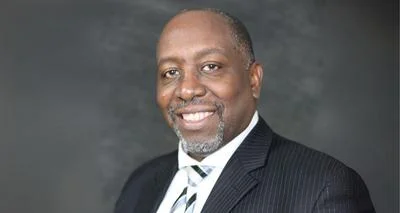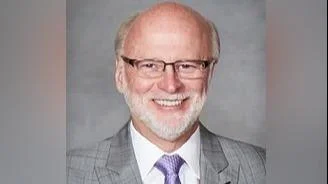Debbie Meyers-Martin, Illinois State Representative from the 38th District | Official website
Debbie Meyers-Martin, Illinois State Representative from the 38th District | Official website
According to the Illinois General Assembly site, the legislature summarized the bill's official text as follows: "Amends the Illinois Income Tax Act. Creates a credit for certain small businesses in an amount equal to the lesser of (i) 10% of the property taxes paid by the qualified small business during the taxable year for eligible real property or (ii) $1,500. Effective immediately."
The following is our breakdown, based on the actual bill text, and may include interpretation to clarify its provisions.
In essence, this bill amends the Illinois Income Tax Act to establish a property tax relief credit for certain small businesses, effective immediately. For taxable years ending between Dec. 31, 2025, and Dec. 31, 2029, eligible small businesses are entitled to a tax credit equal to the lesser of 10% of property taxes paid on eligible real estate or $1,500. The credit cannot reduce tax liability below zero, but any excess may be carried forward for up to five years. Small businesses qualifying for this relief must employ fewer than 50 employees in Illinois and be up-to-date with state and federal tax obligations. The credit is available to sole proprietorships, partnerships, corporations, joint ventures, associations, or cooperatives operating in Illinois, and properties must be non-residential and used for business operations. If the business is a partnership or S corporation, the credit can pass through to partners and shareholders.
Debbie Meyers-Martin has proposed one other bill since the beginning of the 104th session.
Meyers-Martin graduated from the University of Illinois at Chicago with a BA.
Debbie Meyers-Martin is currently serving in the Illinois State House, representing the state's 38th House District. She replaced previous state representative Al Riley in 2019.
Bills in Illinois follow a multi-step legislative process, beginning with introduction in either the House or Senate, followed by committee review, floor debates, and votes in both chambers before reaching the governor for approval or veto. The General Assembly operates on a biennial schedule, and while typically thousands of bills are introduced each session, only a fraction successfully pass through the process to become law.
You can read more about bills and other measures here.
| Bill Number | Date Introduced | Short Description |
|---|---|---|
| HB1361 | 01/14/2025 | Amends the Illinois Income Tax Act. Creates a credit for certain small businesses in an amount equal to the lesser of (i) 10% of the property taxes paid by the qualified small business during the taxable year for eligible real property or (ii) $1,500. Effective immediately. |
| HB1332 | 01/14/2025 | Amends the Hospital Licensing Act. Provides that a hospital licensed under the Act must, at the time a patient is being checked in, give the patient an opportunity to designate an emergency contact to be notified if the patient dies or experiences a significant change in condition. If an emergency contact is designated, hospital staff must communicate with the emergency contact and ask whether the emergency contact would prefer to be notified by telephone call, by hospital staff when the emergency contact reaches the hospital, or by some other method. |






 Alerts Sign-up
Alerts Sign-up